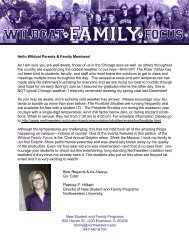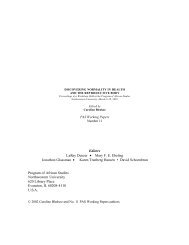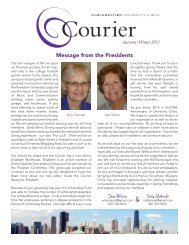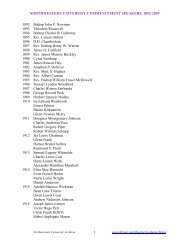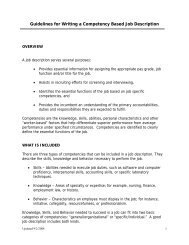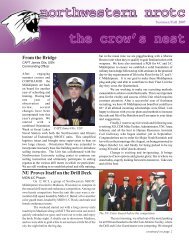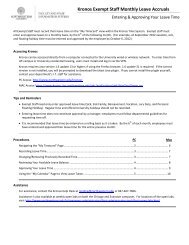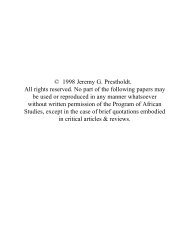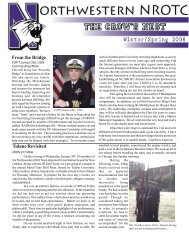TRAGIC RECOGNITION: ACTION AND IDENTITY IN ANTIGONE ...
TRAGIC RECOGNITION: ACTION AND IDENTITY IN ANTIGONE ...
TRAGIC RECOGNITION: ACTION AND IDENTITY IN ANTIGONE ...
You also want an ePaper? Increase the reach of your titles
YUMPU automatically turns print PDFs into web optimized ePapers that Google loves.
the paradigmatic recognition scene in the Antigone, we would look in vain for a corresponding<br />
moment of recognition involving Antigone herself. The only parallel episode comes near the end<br />
of Antigone’s self-lament, and is more equivocal than Creon’s plain reversal: “Should the gods<br />
think that this [i.e., her punishment] is righteousness, in suffering I’ll see my error clear,” she<br />
says. “But if it is the others who are wrong, I wish them no greater punishment than mine”<br />
(926–29). To say that she confesses her guilt here would be to overstate the case, for she only<br />
professes uncertainty about whether the gods will find her righteous or culpable. 89<br />
Yet to suppose on these grounds that only Creon experiences a moment of recognition is<br />
both to overlook something important about Antigone’s words and to misunderstand what this<br />
moment of tragic recognition involves. In the first place, we must be careful to avoid a false<br />
choice between an Antigone who straightforwardly confesses her guilt and an Antigone who<br />
remains as resolute as ever to the end. In fact, both are untrue to the text. Both Antigone’s self-<br />
lament and her admission of the possibility that the gods will judge her guilty represent real<br />
transformations of Antigone’s earlier rigidity. In her opening speeches, Antigone had defiantly<br />
welcomed the prospect of death (70–72), but now she mourns her fate, and in so doing, explicitly<br />
acknowledges that her act has deprived her of the very goods she pursued, including philia and<br />
motherhood (878–81, 918). And, in fact, by acknowledging that the question of the real<br />
significance of her act is out of her hands and rests instead with the gods, Antigone expresses a<br />
more sophisticated recognition of human finitude, of the gap between identity and action, than a<br />
simple avowal of guilt would have indicated. After all, even after Creon changes his tune, he is no<br />
more master of his fate than he had been earlier; in fact, his worst suffering is still to come.<br />
Creon’s real moment of recognition comes after the deaths of his son and wife. As he laments his<br />
fate and prays for a quick death, Creon’s own words reflect his belated awareness not of his<br />
32



